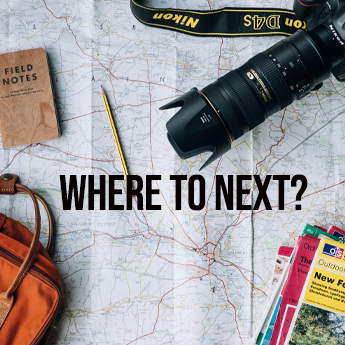 Representative Image According to new research from Ipsos UK and American Express Global Business Travel ( Amex GBT), nearly seven in ten people across generations ( 69 % ) anticipate business travel. To better understand the requirements of business travelers and to understand how people actually feel about going to work, the” Meet Tomorrow’s Business Travelers” record used representative samples of more than 1,800 business travelers in the US and UK. While 70 % of Gen Z respondents ( aged 18 to 28 ) report looking forward to work in some way, older generations are more likely to experience stress, disruption, and difficulty in business travel. In contrast to business travelers overall ( 68 % ), Millennials ( 73 % ), and Gen Z is also least likely to understand that their employer has a responsibility to look after them while they are on business trips, which opens the door to better education and communication regarding business travel policies and support services. The older Millennial cohort ( 29-44 ) has the best reputation for working out, and they are more likely than the previous generations to rate business travel as exciting, motivating, and good for teamwork. Travel Disruption and TechnologyA majority of travelers of all ages who reported having their travel plans slowed down over the past year, say they were well supported by their employers ( 84 % in the UK and 90 % in the US).
Representative Image According to new research from Ipsos UK and American Express Global Business Travel ( Amex GBT), nearly seven in ten people across generations ( 69 % ) anticipate business travel. To better understand the requirements of business travelers and to understand how people actually feel about going to work, the” Meet Tomorrow’s Business Travelers” record used representative samples of more than 1,800 business travelers in the US and UK. While 70 % of Gen Z respondents ( aged 18 to 28 ) report looking forward to work in some way, older generations are more likely to experience stress, disruption, and difficulty in business travel. In contrast to business travelers overall ( 68 % ), Millennials ( 73 % ), and Gen Z is also least likely to understand that their employer has a responsibility to look after them while they are on business trips, which opens the door to better education and communication regarding business travel policies and support services. The older Millennial cohort ( 29-44 ) has the best reputation for working out, and they are more likely than the previous generations to rate business travel as exciting, motivating, and good for teamwork. Travel Disruption and TechnologyA majority of travelers of all ages who reported having their travel plans slowed down over the past year, say they were well supported by their employers ( 84 % in the UK and 90 % in the US).
Gen Z travelers report more frequent disruption to their work travel plans over the past year ( 45 % ), compared to Millennials ( 36 % ) and Gen X ( 32 % ).
According to the review, six out of ten company travelers across generations express attention in using online and self-service tools, while seven in ten request individual assistance when traveling is disrupted, which demonstrates the need for a fusion of individual and technical support.
More than half of respondents from all generations say they are comfortable using generative AI ( GenAI ) to manage tasks like booking flights ( 62 % ), completing expense reports (60 % ), and booking hotels and restaurants on their behalf. GenAI constantly outpaces Gen Z in terms of Millennial convenience. Gen Z travelers are less likely than Millennials ( 66 % ) to express comfort with using GenAI to book flights, despite being occasionally perceived as a “digital native” generation.
We can see how Gen Z employees understand how business travel may help them advance their careers and establish connections in a more erratic world, said Evan Konwiser, CEO of Amex GBT. Having said that, we are aware that traveling may be emotionally draining, particularly when it is disrupted. According to him,” When you combine AI with human skills, you can unlock extraordinary customer experiences while managing the corporate policy and program.” As an economy, it is crucial that we find the right combination of modern self-service and mortal help to meet the needs of both currently and tomorrow’s traveling workforce. Other takeaways include combining work and pleasure or “bleisure” travel: Nearly two-thirds ( 62 % ) of US and UK business travelers have extended work trips for leisure, and half ( 52 % ) have incorporated work into leisure trips, provoking discussions about work-life balance and compliance.
Respect for personal values: Nearly two-thirds ( 65 % ) of employees claim that their employer enables them to maintain their personal values on the road. Nearly eight in ten ( 78 % ) of the travelers who fly for work in the last two years agree with this more than the other.
Work from home and hybrid workers on go: Four in ten said that traveling options would be one of the most crucial considerations when looking for a new job. When questioned about the purpose of their most recent work trip, hybrid workers were more likely to name a variety of travel categories, with 55 % claiming that client work ( project work, relationship building, and sales meetings ) as the driving force behind the trip, compared to 49 % of remote workers and 47 % of location workers.
More than half ( 55 % ) of respondents across generations anticipate traveling more in five years than they do today, with two-thirds of respondents believing that traveling for work will become easier in the future.
The past few years have been challenging for everyone, employers and employees likewise, and those just entering the workforce for the first time are finding it especially difficult to find their feet, said Kelly Beaver Bsc, CEO of Ipsos in the UK and Ireland. We are aware from our own experience and research conducted by our professional staff research team at Ipsos Karian and Box, that working together, whether in person or on-site with our clients, has an significant, positive influence on employee campaigning and network. In our wider work, we also notice that Generation Z has higher stress levels than other generations, giving businesses and brands an opportunity to learn how to react to make things easier. &# 13,
&# 13,
IpsosAmex GBTEvan KonwiserKelly Beaver MBE












